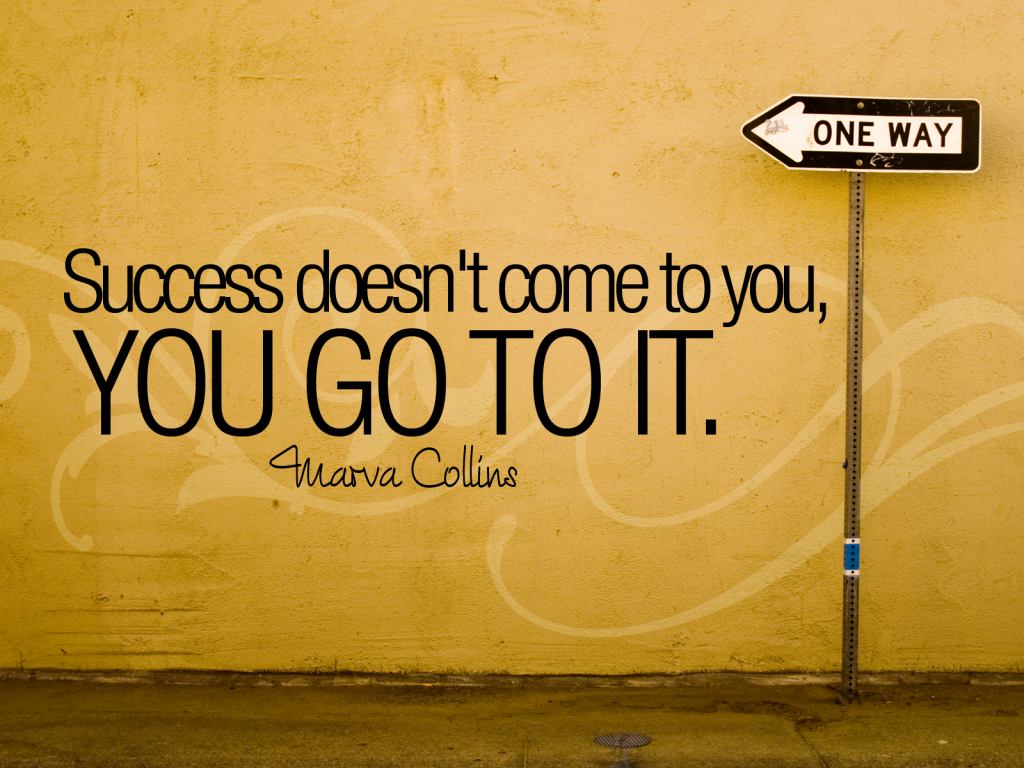Our mind is wired to look for a rule-book to success. For example:
- Learn English in 21 days
- Lose weight in 3 weeks
- Start your business in 7 days
This happens because our mind is hardwired to work in the past. This is an important concept. Understand that our mind makes predictions based on our past experiences. We become uncomfortable when we don’t know what to expect. You have felt this already when you trip over something while walking and you can see how you start to sweat and become overly alert. Your mind is baffled. Because of how our mind is constructed, it needs a rule book to follow.
You need to stop looking for a rule book to success. There is no such thing. You can learn from other people experiences, but focus on creating your own. Other people’s experiences are a good starting point, but don’t try to experience the exact same thing. Life is about creating your own experience. Grasp their stories and develop qualities like foresight, determination and resiliency.
Test your perseverance
When Clarence Daniels Jr. was aspiring to build his career as an entrepreneur, he tried following many rule books of success. Like many budding entrepreneurs he sold his Philadelphia home to secure funds and start a business in the airport concessions market. Daniels did try in many ways to build in his business the right way, but he initially failed. But he did not lose his patience. For three long years he kept fighting, trying and testing business principles and policies to finally become what he is today- Chairman and CEO of Concession Management Services Inc, which takes care of airport restaurant management across the US.
The company now uses its industry based knowledge to move up the ladder, instead of noted and quoted rules of success in business. It has capitalized on issues governing the airport concession markets and developed a new approach to licensing. The company pays restaurant owners attractive licensing fees to allow them to own and operate their concepts in airports.
Plan your product instead of just ideating
Reid Hoffman, the co-founder of LinkedIn also tested and tried his business ideas a number of times following stereotypical rule books to launch his premiere business. In 1997 when he launched SocialNet, a dating website, he understood that business tactics are more important for a product to go successful across the market. In one of his interviews he mentioned “At first, I thought all you had to do was build a high-quality product but the valuable thing is getting in front of millions of people.” Using his own tried and tested experience Hoffman believes, product distribution and financing options should be sorted out before everything else comes in line.
One major step that you need to take to achieve success is to keep questioning yourself, like “Have I made it large?” Yes, this matters. Instead of following how someone else faired in his/her job, question yourself to find out whether you have been successful in making a path-breaking mark.
Visualize the unseen
Take, the example of Spanx founder Sara Blakely. In her entrepreneurial journey she never worked according to the set algorithms of success. Instead, she just tackled each task as they came her way. She had mastered the power of visualization long before she even thought of making a mark on the Oprah Winfrey show. While many of her fellow entrepreneurs thought launching the idea and a website will be the first step, Sara decided to do the opposite direction and concentrate on building the product primarily.
In an interview she urged young budding entrepreneurs to believe in their ideas and not be solely governed by the B-school rules to success. “Believe in your idea, trust your instincts, and don’t be afraid to fail. It took me two years from the time I had the idea for Spanx until the time I had a product in hand ready to sell into stores. I must have heard the word ‘no’ a thousand times. If you believe in your idea 100%, don’t let anyone stop you! Not being afraid to fail is a key part of the success of Spanx.”
Just don’t remain a blind follower who copies successful entrepreneurs. Follow your instincts, think beyond the unthinkable and finally pick your way to define Success for yourself.
Jinesh Parekh is the founder and CEO of Idyllic Software, a Ruby on Rails Development shop, that works as a long-term Technology Partner to startups and small businesses. They help young and innovative ideas to kickstart with an MVP and grow into a world-class web application.
Image Credit: martinamcgowan.com





